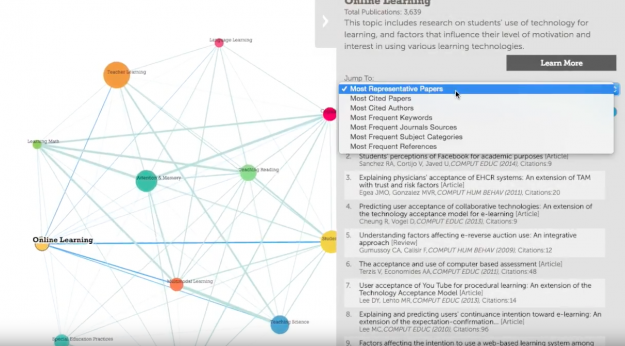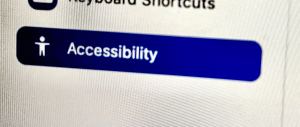New tool from Digital Promise connects educators, startups to research

Digital Promise has created a new interactive research tool to help schools and edtech developers build better programs and products.
The Research Map — which make troves of education data and learning science research between 2005 and 2014 easily available to educators and vendors — is built from a collection of 100,000 articles from more than 180 journals.
Researchers for Digital Promise broke down what they found into 12 topics and 138 subtopics. The topics include Teacher Learning, Student Motivation, Teaching Science, Cognition & Learning, and Online Learning. The search and filter functions can help users find the topics that would most interest them.
“It can spark some discussion about which topics in education have been studied over the past decade or so, and potentially where there are new areas for collaboration and new research,” Aubrey Francisco, research director at Digital Promise, said in an interview.
Francisco said the research gives teachers and vendors a starting point to view works that have been cited frequently, by highly regarded authors and researchers in their fields.
“I think it’s hard to know what’s available,” she said. “It’s difficult to understand the entire research landscape to identify what knowledge there is that can be more effectively communicated.”
Digital Promise, a nonprofit organization headed by former U.S. Educational Technology Director Karen Cator, is hoping to reach different types of users with this tool.
“We think of the audience as a couple of different groups — one is the technology product developers in the early stage who are looking to use research to improve their product,” Francisco said. “The second audience is really education leaders. They could be the curriculum director, or principal, or someone who is designing a program for a school.”
If a startup or education accelerator is designing a reading product, for example, the vendor can identify authors of the research that is most relevant to them, and then potentially find a research adviser.
A Harvard professor who teaches a graduate course on technology design has already used the tool to inform research, Francisco said.
“We hope that
they would be able to find research more easily that could inform their product
and program,” she said. “It would be a place for them to dig deeper.”
Reach the reporter at corinne.lestch@edscoop.com, and follow her on Twitter @clestch and @edscoop_news.




